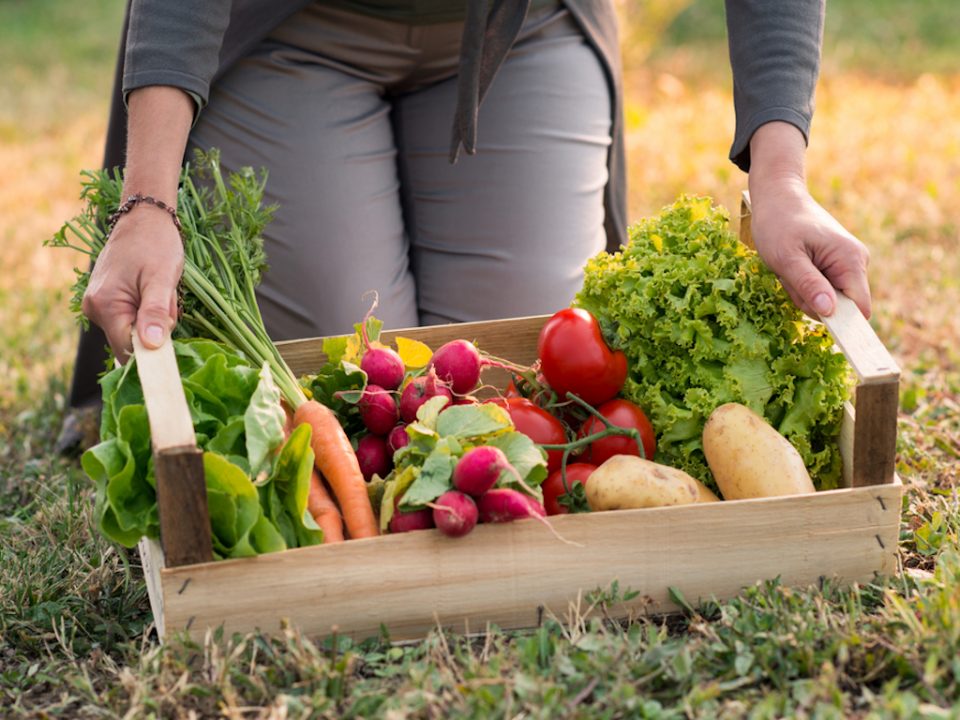What are organic foods
Organic Foods are crops that are produced without using synthetic pesticides, fertilizers, or other genetically modified components. They also include animal products such as cheese, milk, meat, or honey that were also produced free of growth hormones, antibiotics.
Need for Standards in Organic Foods
People worry a lot to purchase organic food due to a lack of confidence about its genuineness. The problem of fraud and mislabeling occurs when a Food Business Operator (FBO) mark as organic products while it contains non-organic ingredients. Therefore, it becomes important to check if the food labelled as ‘organic’ is genuinely organic
Certified Organic Foods
The Jaivik Bharat logo for Organic Food is an identity mark to distinguish organic products from non-organic ones. The logo is supported with the tagline ‘Jaivik Bharat’, at the bottom, which signifies Organic Food from India. To search the Organic Food products by name of the food and by the name of the company.
Organic Food Vs Locally Grown Food
Unlike organic standards, there is no specific definition for ‘local food’. It could be grown in your local community, your state, your region, or your country. During large portions of the year, it is usually possible to find food grown close to home at places such as a farmer’s market.
What are the Pros and Cons of Organic Food
Organic food is food that comes from farms that follow the rules and regulations related to organic farming. Moreover, many people do not want to buy meat from factory farming anymore since they learned how poorly animals are treated in the processes related to it. However, apart from the many advantages, organic food has to offer, there are also some issues related to it.
| Pros | Cons |
| Less soil pollution | Higher food prices |
| Less water pollution | Shelf life is quite limited |
| Reduction in the use of chemical fertilizers and pesticides | Organic often means not entirely organic |
| Animals are treated better in organic farming | Controls are necessary on a regular basis |
| Less need for antibiotics | Health risks if production chain is not optimized |
| Higher food quality | Many different organic food labels may confuse customers |
| Organic food may taste better | Limited choice of products |
| Especially important in the growth process of children | Some claims regarding organic food are not proven yet |
| Avoidance of genetically modified organisms (GMOs) | Production of organic food implies plenty of work |
| Avoidance of hormonal treatments | It May not suitable to feed billions of people |
| Positive human health effects | Organic food production may contribute to poverty |
| Can be more sustainable compared to conventional food | The quality of organic food greatly varies across producers |
| Better nutritional values | Acceptance in the general public may be limited |
Examine the Health Benefits of Organic Food
As Covid-19 brings various changes in the behaviour pattern of every individual, the way we consume food has also transformed considerably. With various options available for the people to pick from, organic food has often occupied a prime spot when it comes to consuming safe nutritious, and healthy food. Let us take a quick look at various reasons why organic food products should be a part of your diet and how they can help you in improving your health.
- Enhanced overall health
- Rich in Antioxidant content
- Tastes better
- Stronger Immune system
- Environment friendly
Organic food has become quite popular over the past decade and will continue to play an important role in the lives of many people. As we have seen from the previous analysis, organic foods have many important advantages. However, there are also some issues related to organic food products that our governments have to address to supply humanity with healthy food while solving the problems related to organic farming at the same time.
Choose Healthy Food, To Stay Healthy as Much Can Be!!!!!



